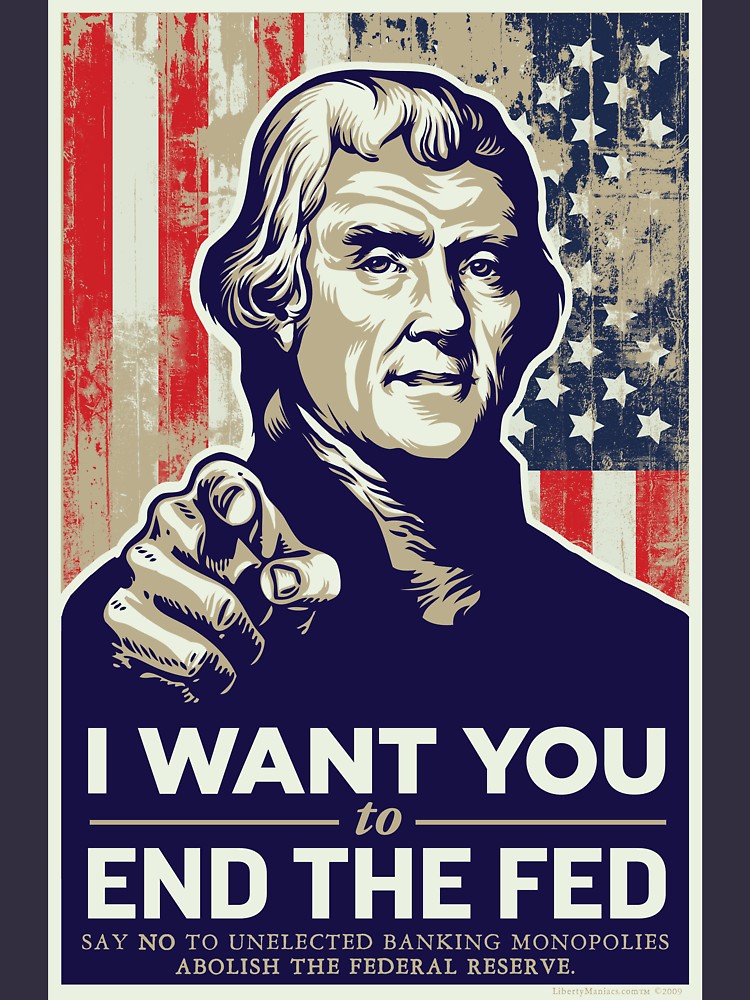Trump Wants to Name Political Loyalists to Federal Reserve Board
Fed governors like Herman Cain or Stephen Moore are likely to want to goose short term apparent prosperity to help the president politically. That's a bad idea.
In the past couple of weeks, President Donald Trump is reported to have settled on two choices for open seats on the Federal Reserve Board of Governors: former Club for Growth president and Heritage Foundation economic policy analyst Stephen Moore, and former Godfather's pizza boss and 2012 GOP presidential hopeful Herman Cain. Cain from 1989-96 served in various capacities, including chairman of the board, with the Federal Reserve Bank of Kansas City, though Cain doubters argue such positions are more honorary for local business leaders than proving any monetary policy savvy.

Neither Cain nor Moore are technically trained academic economists, which alarms many, although, as has been argued by former Federal Reserve Bank of Dallas analyst Danielle DiMartino Booth, board members with more varied real-world experience might be useful voices in central bank decision-making.
It is less lack of academic/technical training that's disturbing as the clear sense that both men are being appointed not for expertise but for team-playing loyalty to Trump. Cain has recently been running a pro-Trump political action committee, America Fighting Back; Moore was a former Trump economic adviser during his 2016 campaign.
The president is on record as not caring about any long-term debt troubles as he believes he'll have gotten out of Dodge by the time the world stops wanting to loan the U.S. government money. That doesn't mean that he doesn't want the Federal Reserve to keep the interest costs on his books right now as low as possible, and he's said that out loud plenty. Trump doubtless believes Cain and Moore have heard him and will react accordingly.
Trump himself used to understand the bubbly dangers of constant low-interest rate policy from the Fed, as did Cain, who used to love the gold standard for its very power to keep short-term political priorities out of our money.
For his part, Moore had been for higher interest rates in 2008 when Obama was president for fear of the inflationary dangers of constant low rates. Yet in the Trump era he was so mad at current Fed chair Jerome Powell for his interest rate hikes he called for him to resign and is on record thinking interest rates should shrink, not rise, right now. That can't help but make you think attitudes toward the president and not cold economic analysis drive his monetary policy beliefs.
While the links between Fed interest rate policy policy and the money supply are complex and much-argued, the general theory Moore is working under is that lower interest rates will help goose employment and asset values in the short term, which is good for Trump.
Prior to Cain and Moore, most Fed-watchers didn't see previous Trump appointees as just out to prop up the president's desire to sell positive economic performance to voters. Decisions made just to make short-term indicators look good risk future bubble-bursting collapses. It would be saying too much to pretend these sorts of appointments are some unprecedented blow at an imagined previously completely unpoliticized Fed, but it still isn't promising for intelligent long-term decision-making from the body.
Any Trump nominee must be confirmed by the Senate, and for what it's worth Utah's Republican Sen. Mitt Romney is already publicly down on Cain and ambivalent about Moore, hoping for, as he told Politico, "someone…outside of the political world…an economic leader not a partisan leader."
When Trump does eventually fill those two seats, six of the Board's seven members will be Trump appointees. Fed Board members serve single nonrenewable 14-year terms. Decisions about interest rate movements are made by the Federal Open Market Committee, a 12-member body including all seven of the Board of Governors. The most recent announcements from the Fed have them intending to keep their interest rate target steady for the rest of the year at 2.25 to 2.5.


Show Comments (94)